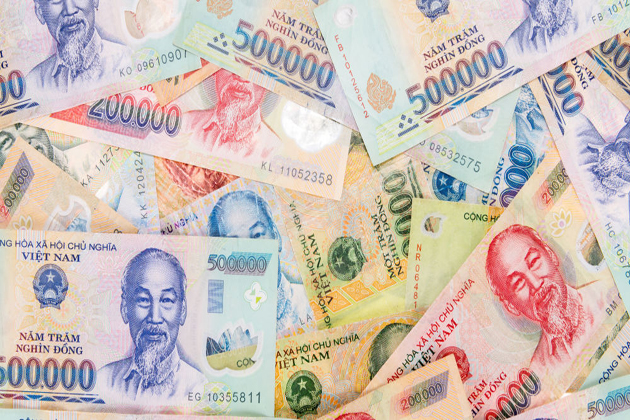

Vietnam then entered 2019 with a low level of reserves, which it built up by buying dollars, in the process preventing the appreciation of the dong and keeping the dong/dollar real exchange rate low.Vietnam was found to have its currency undervalued by 8.3% in 2018 by the International Monetary Fund in its 2018 Article IV Report (IMF, 2018).Vietnam has kept its currency undervalued since 2016.Is the TR factually correct? The TR decision is based on the following claims: Hence, Treasury has determined under the 1988 Act that Vietnam is a currency manipulator. Treasury therefore assesses based on a range of evidence and circumstances that at least part of Vietnam’s exchange rate management over the four quarters through June 2020, and particularly its intervention, was for purposes of preventing effective balance of payments adjustments and gaining unfair competitive advantage in international trade. Intervention has also contributed to undervaluation of the dong on a real, trade-weighted basis, with the real effective exchange rate undervalued in 2019. Over the four quarters through June 2020, however, Vietnam conducted large-scale and protracted intervention, much more than in previous periods, to prevent appreciation of the dong, in the context of a larger current account surplus and a growing bilateral trade surplus with the United States. Additionally, Vietnam entered 2019 with a relatively low level of reserves. Vietnam has applied this policy consistently in periods of both appreciation and depreciation pressure. Vietnam has tightly managed the value of the dong relative to the dollar at an undervalued level since 2016. Those with persistent one-sided intervention in foreign currency purchases of at least 2% of GDP over a 12-month period, and whose intervention frequency is at least six months out of a 12-month period.Those with a current account surplus of at least 2% over a 12-month period and.Those with at least a $20 billion trade surplus with the U.S.The TR thus applies three criteria to trading partners with bilateral trade in goods with the U.S. The 2015 Act requires the Treasury Secretary to monitor its major trading partners’ macroeconomic and currency policies. dollar to prevent effective balancing of payments adjustments or to gain unfair competitive advantage in international trade. The 1988 Act requires the Treasury Secretary to assess whether a country manipulates its bilateral exchange rate with the U.S. Treasury Secretary must report to Congress on certain aspects of international economic and exchange rate policies. Instead, higher exports would lead to higher tariffs, lower world trade and lower welfare.īackground. tariffs on those countries, it would discourage many developing countries from following the virtuous development path international institutions have long advocated: higher exports leading to higher income and higher standard of living. If this classification entails higher U.S. Hereafter, any developing country, rich or poor, whose macroeconomic management succeeds in achieving high economic growth through exports, could risk being treated the same way. Unless the Biden administration reverses the Treasury approach, the decision to classify Vietnam as a currency manipulator has implications beyond any particular country. Exchange rate adjustments are not directly linked with these necessary reforms at this stage and may worsen the current distortions. Vietnam needs to raise the productivity of its domestic economy through reform of state-owned enterprises and by leveling the playing field between domestic and foreign-owned companies. Treasury is correct that Vietnam has to adjust its policies, its emphasis on the exchange rate as a policy variable is misplaced.


Treasury report and the implications for Vietnam. This policy note assesses the merits of the U.S. Additionally, Vietnam’s GDP per capita and total GDP are a fraction of the U.S.’s, but the country is assessed in the same way as developed countries, including Switzerland and Germany, and/or as a large country, such as China and India. Treasury openly expressed its concerns about a country that graduated from the group of low-income countries only a few years ago. In Vietnam’s case, it is surprising that the U.S. Treasury Report (hereafter referred to as the TR) to Congress singled out Vietnam and Switzerland as currency manipulators.


 0 kommentar(er)
0 kommentar(er)
